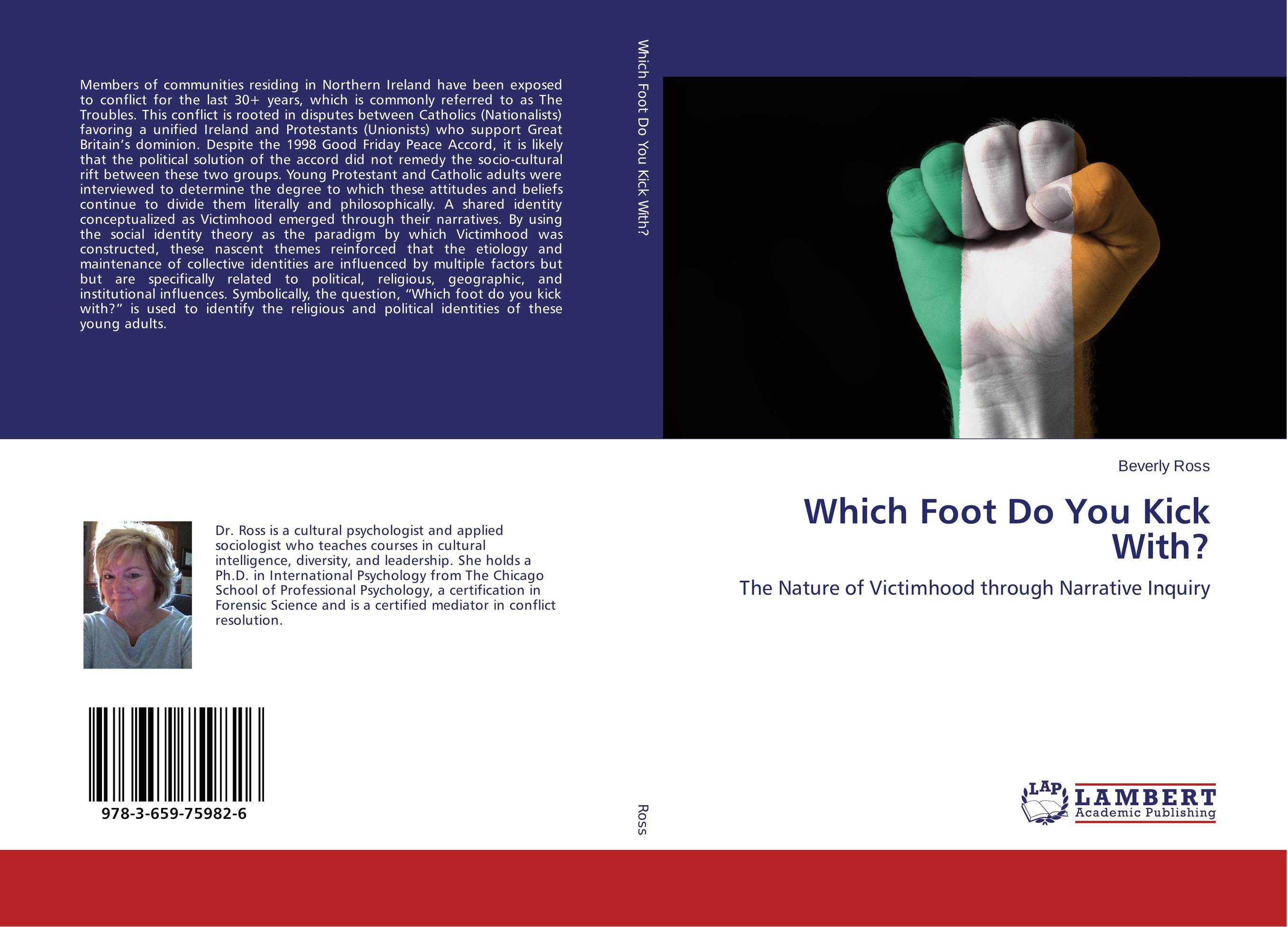| Поиск по каталогу |
|
(строгое соответствие)
|
- Профессиональная
- Научно-популярная
- Художественная
- Публицистика
- Детская
- Искусство
- Хобби, семья, дом
- Спорт
- Путеводители
- Блокноты, тетради, открытки
Which Foot Do You Kick With?. The Nature of Victimhood through Narrative Inquiry

В наличии
| Местонахождение: Алматы | Состояние экземпляра: новый |

Бумажная
версия
версия
Автор: Beverly Ross
ISBN: 9783659759826
Год издания: 2015
Формат книги: 60×90/16 (145×215 мм)
Количество страниц: 160
Издательство: LAP LAMBERT Academic Publishing
Цена: 42249 тг
Положить в корзину
| Способы доставки в город Алматы * комплектация (срок до отгрузки) не более 2 рабочих дней |
| Самовывоз из города Алматы (пункты самовывоза партнёра CDEK) |
| Курьерская доставка CDEK из города Москва |
| Доставка Почтой России из города Москва |
Аннотация: Members of communities residing in Northern Ireland have been exposed to conflict for the last 30+ years, which is commonly referred to as The Troubles. This conflict is rooted in disputes between Catholics (Nationalists) favoring a unified Ireland and Protestants (Unionists) who support Great Britain’s dominion. Despite the 1998 Good Friday Peace Accord, it is likely that the political solution of the accord did not remedy the socio-cultural rift between these two groups. Young Protestant and Catholic adults were interviewed to determine the degree to which these attitudes and beliefs continue to divide them literally and philosophically. A shared identity conceptualized as Victimhood emerged through their narratives. By using the social identity theory as the paradigm by which Victimhood was constructed, these nascent themes reinforced that the etiology and maintenance of collective identities are influenced by multiple factors but but are specifically related to political, religious, geographic, and institutional influences. Symbolically, the question, “Which foot do you kick with?” is used to identify the religious and political identities of these young adults.
Ключевые слова: Collective identity, Social Categorization, Social identity, collective consciousness, inter-group conflict, Victimhood



